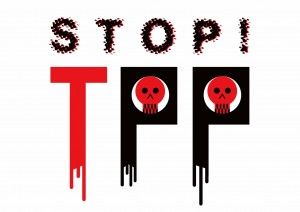(4 pm. – promoted by ek hornbeck)
 I’ve been writing about the Trans Pacific Partnership for over a year, it still flies under the radar in the news media for a number of reasons, the most obvious reason is that the corporate giants don’t want the public knowing how really bad this trade agreement is. It is so bad that Mitt Romney urged Pres. Obama to finish negotiations and ratify it. Those negotiations are slowly coming to a conclusion.
I’ve been writing about the Trans Pacific Partnership for over a year, it still flies under the radar in the news media for a number of reasons, the most obvious reason is that the corporate giants don’t want the public knowing how really bad this trade agreement is. It is so bad that Mitt Romney urged Pres. Obama to finish negotiations and ratify it. Those negotiations are slowly coming to a conclusion.
Political corruption and the ‘free trade’ racket by Dean Baker, Al Jazeera
In polite circles in the United States, support for free trade is a bit like proper bathing habits: It is taken for granted. Only the hopelessly crude and unwashed would not support free trade.
There is some ground for this attitude. Certainly, the US has benefited enormously by being able to buy a wide range of items at lower cost from other countries. However, this does not mean that most people in the country have always benefited from every opening to greater trade.
And it certainly does not mean that the country will benefit from everything that those in power label as “free trade”. That is the story we are seeing now as the Obama administration is pursuing two major “free trade” agreements that in fact have very little to do with free trade and are likely to hurt those without the money and power to be part of the game.
The deals in questions, the Trans-Pacific Partnership (TPP) and the US-European Union “Free Trade” Agreement are both being pushed as major openings to trade that will increase growth and create jobs. In fact, eliminating trade restrictions is a relatively small part of both agreements, since most tariffs and quotas have already been sharply reduced or eliminated.
Rather, these deals are about securing regulatory gains for major corporate interests. In some cases, such as increased patent and copyright protection, these deals are 180 degrees at odds with free trade. They are about increasing protectionist barriers.
AS part of these agreements, the worst parts of the zombie bill, Stop Online Piracy Act (SOPA), are being incorporated to “police” the internet.
Foreseeing opposition and difficulty getting the 2/3rd’s majority to pass this nightmare, Sen Orrin Hatch (R-UT) has proposed amendments to a Senate budget resolution that would speed its passage and implementation:
Hatch, who has been pressing the White House to move forward with fast-track authority, intends to offer an amendment that calls for implementation of the Trans-Pacific Partnership (TPP), which is expected to be completed this year, along with a U.S.-European Union trade deal, which is set to begin talks in June, and any other potential free-trade agreements to be done under trade promotion authority (TPA). [..]
Meanwhile, all of these negotiations have been held in secret. Yves Smith writes this at naked capitalism:
Congressional staffers have confirmed that the text of the TPP draft is classified. That means that only people with security clearances, which for practical matters means Congressmen and certain staffers on key committees (House Ways and Means and the Senate Finance Committee) in theory have access. That is already a monster impediment. Congressmen almost never have the time (even where they have the ability) to read long agreements in full and parse how key sections work (which often mean going back to definitions and in some cases, existing law). So keeping most staffers and third parties with expertise away assures that (until the last minute) the discussion and “clarifications” of the provisions under negotiation will come only from parties that are already in the tank.
But practice is even worse than theory. The full draft text is being withheld. And as anyone who has been involved in legal-related drafting knows, the actual language is critical. General terms and concepts that sound innocuous can serve as Trojan horses for all sorts of clever “gotcha” provisions.
Yves also brings attention to an article from Truthout
Under federal law, members of the House Ways and Means and the Senate Finance Committees are designated official advisers to the USTR. In addition to every Representative and Senator, those panels’ staffers – being on “committees of jurisdiction” – are made privy to the American delegation’s proposals.
Not a single person in Congress, however – or in any legislature of any country party to the deal – is allowed to even once-over the latest version of the actual draft agreement. In an email to Truthout, USTR spokesperson Carol Guthrie confirmed that senators and Congresspeople on committees of jurisdiction, along with their staffers, are only allowed to see the USTR proposals – not the working agreement. She added that “others at the discretion of the committees’ chair and ranking member” are given access to USTR proposals.
It is time for some cleansing sunshine.
We need to start to take action by calling our Senators and Representatives to tell them to stop this bill that will give international corporations more power that our own government, laws and courts,

1 comments
Author